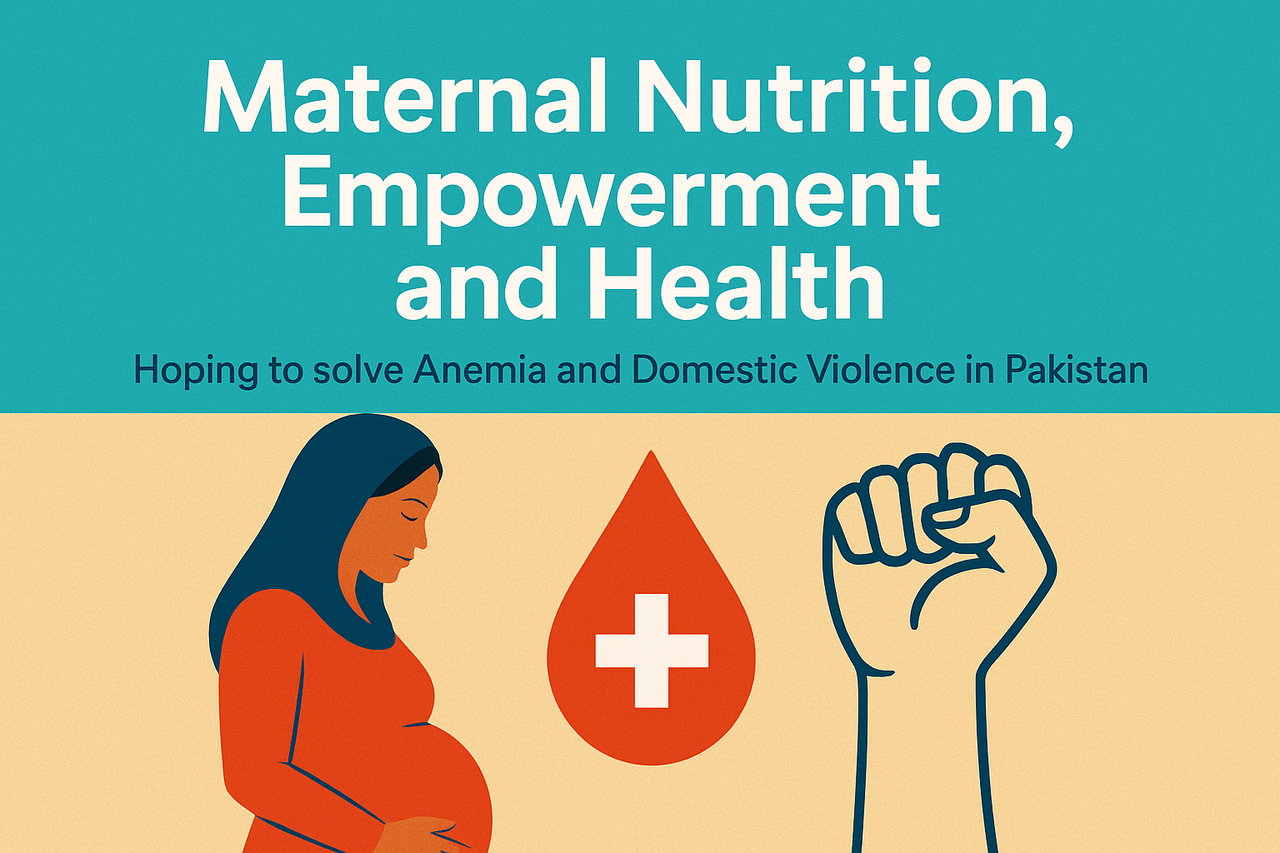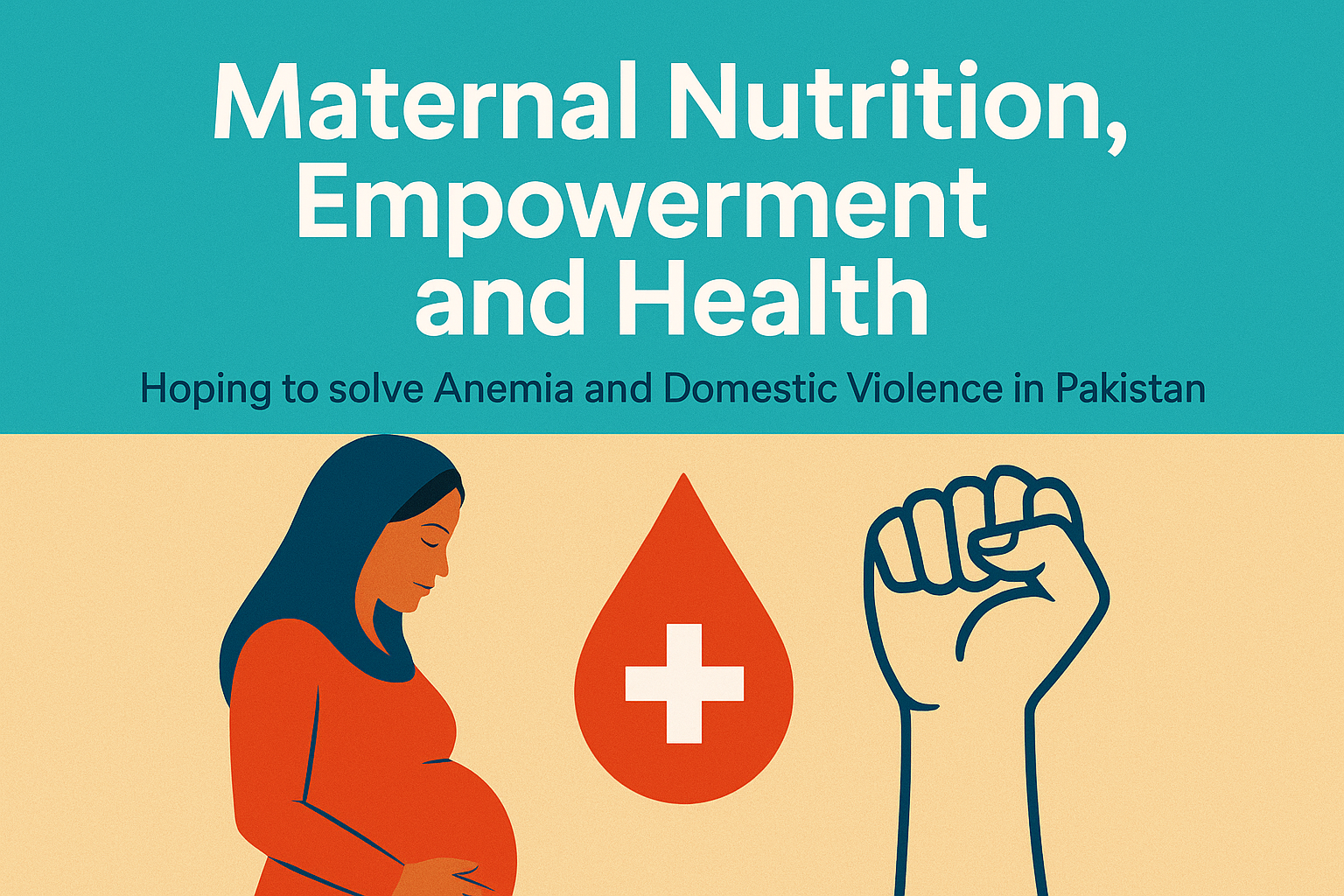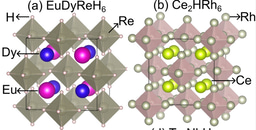Maternal Nutrition, Empowerment and Health: Hoping to solve Anemia and Domestic Violence in Pakistan.
Published in Sustainability, Public Health, and Education

Although the world has come to understand the critical role of proper maternal nutrition throughout pregnancy, the situation in most developing countries such as Pakistan still shows that there are still problems. Good nutrition is also pertinent to the health of the mother as well as the healthy development of the fetus and positive birth results. Nonetheless, millions of women continue to suffer nutritional deficiency and anemia as well as lack access to good medical care in low and middle income countries (LMICs). These problems, with gender inequality and domestic violence, have extensive consequences on maternal and neonatal health. Burden of Maternal and neonatal mortality in Pakistan.
The country of Pakistan is still struggling with maternal and infant mortality rates. The Pakistan Demographic and Health Survey (PDHS) revealed that the maternal death ratio is 186 deaths per 100, 000 live births and the neonatal death rate is very high at 42 deaths per 1,000 live births. This prevalence has a share in about 7 percent of the total number of neonatal deaths in the world. Among the greatest causes of these numbers is the anemia in pregnancy, which can be reduced to some extent with the help of timely intervention and nutrition.
Learning about Anemia and Its Consequences:
Anemia is associated with the inadequacy of the body to supply oxygen to the tissues due to the lack of red blood cells or hemoglobin. WHO divides the types of anemia in pregnancy into mild (100-109 g/L), moderate (70-99 g/L) and severe (<70 g/L). Iron deficiency is attributed to more than half of the anemia cases in pregnant women. Anemia caused by iron deficiency raises the chances of postpartum bleeding, maternal morbidity and death.
In addition to these direct threats, anemia has also been associated with a number of undesirable pregnancy outcomes- preterm birth, low birth weight, low-small-age-gestational-age (SGA) babies, stillborn babies, and perinatal deaths. Babies whose mothers are anaemic are also prone to stunting and developmental delays.
The Interaction of Anemia, Domestic Violence, and Women Empowerment:
The health of the mother is not affected only by biological and nutritional factors; social determinants are just as strong. The domestic violence as a widespread problem in the world has been the barrier to reaching the maternal health targets. WHO estimates that almost one in three women around the world has been victimized to domestic violence whereas in Pakistan, the number is estimated to be much more. Women are not allowed to make their health choices, pursue care, or follow nutritional supplementation programs because of such violence.
Women are often not able to avoid violence because of pregnancy, and, on the contrary, it makes them more vulnerable. The opportunity of screening and support is provided by frequent contact with healthcare providers throughout the pregnancy. Nevertheless, uncertainty, fear, and stigma usually make women fail to disclose abuse.
Conversely, women empowerment capacity to make knowledgeable and independent choices is transformational in health outcomes. Strong women will be more inclined to seek antenatal care, adhere to nutritional recommendations and appropriate supplementation in pregnancy. On the other hand, the inability to be empowered contributes to poor health-seeking behavior, malnutrition, and late treatment.
Food Deprivation and the Health of the Pakistani Mother:
The statistics were alarming as the National Nutrition Survey (NNS) 2018 found that one out of seven women of childbearing age in Pakistan is under nutrition affected. The worst proportion is registered in the Sindh province with 22.6 percent of women having been affected. Anemic women make up about 41.7% of the rural (44.3%) as compared to urban (40.2) regions with iron deficiency being one of the main causes.
In addition, poor food diversity and food insecurity is evidenced by widespread deficiencies in key micronutrients including vitamin D (79.9%), vitamin A (27.3%), calcium (26.5%), zinc (22.1%), and iodine (17.5%). All these shortcomings have dire consequences on mothers and babies. Low-quality diets in pregnancy do not only cause anemia but also predispose the pregnancy to conditions like preeclampsia, eclampsia and preterm birth.
Addressing Micronutrient Deficiencies: Iron and Folic Acid to Multiple Micronutrient Supplement:
Iron and Folic Acid (IFA) supplementation has been advocated by the WHO since 1968 as part of a normal antenatal care to prevent anemia. Although this has been the case with the intervention, anemia and consequent complications still persist in LMICs, and therefore, more measures are required.
United Nations International Multiple Micronutrient Antenatal Preparation (UNIMMAP) was launched in 1999. This formula is not only a combination of iron and folic acid, but also of various vitamins and minerals namely vitamins A, C, D, E, B-complex, zinc, copper, selenium, and iodine. These are referred to as Multiple Micronutrient Supplements (MMS), and have been known to achieve superior pregnancy results in comparison to IFA on its own.
Studies indicate that MMS has a great possibility of cutting down the low birth weight and preterm birth as well as the still births. Indeed, according to the estimates given by the world, only when 30 percent of pregnant women were treated to MMS, over 250,000 children deaths and 25 million Disability-Adjusted Life Years (DALYs) would be averted in an 10-year span.
Conforming to the Sustainable Development Goals (SDGs):
Such measures as maternal nutrition, domestic violence, and women empowerment have direct impacts on the implementation of various Sustainable Development Goals (SDGs).
SDG 2.2 will improve to abolish malnutrition in all its forms by 2030.
SDG 5.2 is based on the eradication of violence of all kinds against women and girls.
SDG 5.5 aims at making women fully participate and lead in the decision-making process.
With the approach to consider the combined problems of malnutrition, anemia, domestic violence, and the empowerment of women, Pakistan will be able to advance the mentioned goals significantly.
Research and the Way Forward:
Nevertheless, there are gaps in knowledge of the intersection of anemia, empowerment, and domestic violence in Pakistan despite the current efforts. Literature is scanty on how these factors interact to determine the maternal hemoglobin levels, adherence to supplements and infant outcomes.
One of the proposed studies in Karachi aims to fill this gap using a longitudinal and prospective design. The study will involve the pregnant women throughout the time of early pregnancy (before gestation exceeds 14 weeks) up to the first week of postpartum. The participants will be separated into two entities: the people who will be provided with IFA and those who will be given MMS. The study aims to:
- Compare the level of maternal anemia between the two groups.
- Evaluate the results like preterm delivery, low birth weight, and premature neonatal deaths.
- Test the links of domestic violence, empowerment and supplementation compliance.
The results will be used to inform evidence-based interventions and policy changes to enhance maternal nutrition and preventable deaths.
To guarantee the transparency and compliance with the international research standards, the given study has been prospectively registered in the ISRCTN Registry (International Standard Randomised Controlled Trial Number) under the identifier ISRCTN https://www.isrctn.com/ISRCTN11392051
Conclusion:
Maternal nutrition is not only a biological matter but also a societal, cultural and economic issue that is based on gender dynamics and structural inequality. In Pakistan with its malnutrition and anemia that still kill people, it is necessary to have a multifaceted approach. This involves the promotion of more than one micronutrient supplementation (MMS), domestic violence, and empowerment of women, both at household and community levels.
To ensure that all women get resources, autonomy and support needed to have healthy and safe pregnancies, healthcare providers, policymakers and the civil society must work jointly to improve maternal health. Addressing these areas of gaps, nutrition, safety, and empowerment, Pakistan can get a step closer to fulfilling not only the national health objectives but also the national responsibilities of the 2030 Sustainable Development Agenda nourishing mothers to gain healthy generations in the future.
Follow the Topic
-
ISRCTN: The UK’s Clinical Study Registry

A primary clinical trial registry recognised by WHO and ICMJE that accepts studies involving human subjects or populations with outcome measures assessing effects on human health and well-being, including studies in healthcare, social care, education, workplace safety and economic development.



Please sign in or register for FREE
If you are a registered user on Research Communities by Springer Nature, please sign in